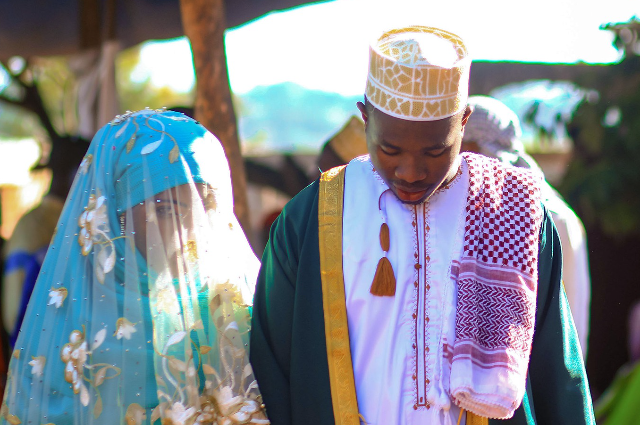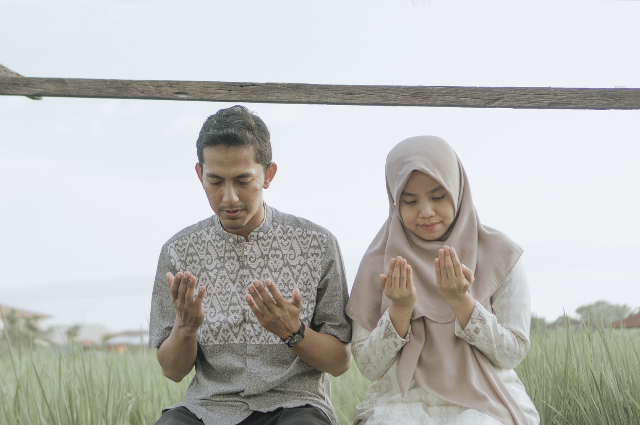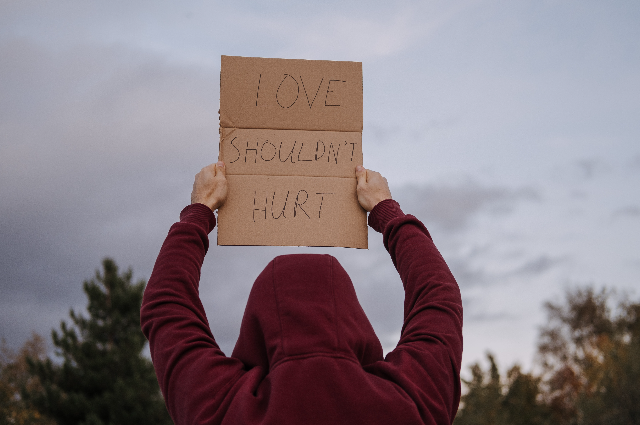
"What makes life meaningful is love. The right that makes us human is the right to love. To criminalize the expression of that right is profoundly cruel and inhumane."
- J. Leila Seth
Arising in a background of national religious tension, Love Jihad - also called Romeo Jihad, is an alleged activity under which young Muslim boys and men are said to reportedly target young girls belonging to non-Muslim communities for conversion to Islam by feigning love. This alleged activity is based on the power of emotional appeal in religious conversion (1). The young men apparently waging war through love through the capture of innocent Hindu women are also referred to as love Romeos. Love 'Jihad' is an unofficial term used by radical Hindu groups for referring to an alleged campaign by Muslim men to convert Hindu girls under the pretext of love. The concept first rose to national attention in India in 2009, with claims of widespread conversions in Kerala and Mangalore, but claims have subsequently spread throughout India and beyond, into Pakistan and the United Kingdom. With waves of publicity in 2009, 2010, 2011, and 2014, the allegations of Love Jihad in India have raised concerns in various Hindu, Sikh, and Christian organizations, while Muslim organisations have denied the allegations.
“Love jihad” is a term used by the political and religious right to describe an alleged phenomenon where Muslim men lure Hindu women, by hook or by crook, into marrying them and converting to Islam. Right-wing propagandists claim that this is an organised racket rooted in a widespread conspiracy. Actual offences that may be committed in this regard, such as forced conversion or marriage that is entered into under false pretenses or coercion, are already punishable under existing legislation but also the wide framing of the proposed legislation goes against India’s constitution and sound judicial precedent.
Marriage between Muslim men and Hindu ladies is a legitimate common marriage under The Special Marriage Act of 1954. Love Jihad has been one of the significant strains encompassing interfaith relationships. The "UP Vidhi Virudh Dharma Samparivartan Pratishedh Adyadesh 2020" (prohibition of unlawful religious conversion), infamously known as the 'Love Jihad' law, states among other things that a marriage will be declared null and void if the “sole intention” of the same is to “change a girl’s religion”. The law cleared by the Uttar Pradesh Cabinet defines punishment and fine under three different heads. Currently, three other BJP-ruled states – Madhya Pradesh, Haryana and Karnataka – are also mulling laws designed to prevent "forcible conversions" through marriage.
INTRODUCTION:
According to the Indian Constitution, citizens have the freedom to “profess, practice and propagate” religion. The word propagate must include the citizen’s right to convert. The right to propagate and convert has come into contradiction with laws that restrict a citizen to do so. Anti-conversion laws have roots in India’s colonial history and the deep caste and communal fractures in its society.
"The myth of ‘love jihad’ is sustained through widely circulated illustrations of ‘lustful’ Muslim men and ‘victimised’ Hindu women. These images recirculate decades-old calumnies and make invisible Hindu men’s regulation of Hindu women."
The proposed laws against “love jihad” should be, similarly, placed within the context of the Citizenship Amendment Act (CAA), a piece of controversial legislation passed last year that enables the state to question the citizenship of Indian Muslims. While this legislation sought to other Muslims as “outsiders” to the country, the narrative of “love jihad” seeks to other them within Indian society.
The very essence of Articles 14, 21 and 25 of the Indian Constitution, which recognize the fundamental right of an individual to equality, to live with dignity, and to freely profess, practice and propagate religion, which cumulates in every individual’s right to love and marry a person of one’s choice. In India, secularism, which has been upheld as a central constitutional principle despite the chequered relationship between Hindus and Muslims – the two largest religious communities in India - is historically tested by friction and violence. The statements are a direct attack on the Constitution and the individual freedoms of the people in this country.

LOVE JIHAD STATUS IN INDIA:
Marriage for the sheer purpose of converting a girl's religion will be declared null and void, with a punishment of up to 10 years in prison. Forceful religious conversion will be punishable with a jail term of 1-5 years with Rs 15,000 penalty. If the woman is a minor or belongs to a Scheduled Caste or Scheduled Tribe, the jail term will be between 3 years and 10 years and the penalty would go up to Rs 25,000. Mass conversions will be punishable with a jail term of 3-10 years and a fine of Rs 50,000 on the organisations conducting it. If someone wants to convert their religion after marriage, they will have to submit an application to the District Magistrate two months in advance. Conversions using force, coercion, allurement, deceit and fraud are made non-bailable and cognisable offences, which means a police officer can arrest a suspect without a warrant and start an investigation without the permission of a court.
- Once a person becomes a major he or she can marry whosoever he/she likes. [Lata Singh Union of India, (2006) 5 SCC 475].
- An inherent aspect of Article 21 of the Constitution would be the freedom of choice in marriage. [Indian Woman Says Gang-Raped on Orders of Village Court, In the report, (2014) 4 SCC 786].
- The choice of a woman in choosing her partner in life is a legitimate constitutional right. It is founded on the individual choice that is recognized in the Constitution under Article 19. [Asha Ranjan v. State of Bihar, (2017) 4 SCC 786].
- The consent of the family or the community or the clan is not necessary once the two adult individuals agree to enter into a wedlock. It is a manifestation of their choice which is recognized under Articles 19 and 21 of the Constitution. [Shakti Vahini Union of India, (2018) 7 SCC 192].
- Neither the State nor the law can dictate a choice of partners or limit the free ability of every person to decide on these matters. Social approval for intimate personal decisions is not the basis for recognising them. [Shafin Jahan Asokan K.M., (2018) 16 SCC 368].
- Privacy is the ultimate expression of the sanctity of the individual. It is a constitutional value that straddles across the spectrum of fundamental rights and protects the individual a zone of choice and self-determination. privacy is one of the most important rights to be protected both against State and non-State actors and be recognized as a fundamental right. [K.S. Puttaswamy (Privacy-9J.) v. Union of India, (2017) 10 SCC 1].
In 2019, the Indian government also passed the Citizenship Amendment Act, which eases the pathway to citizenship for a range of religious groups from India’s neighboring countries but excludes Muslims. Now, in its latest move, India’s most populous state, Uttar Pradesh, where about a fifth of the population is Muslim and the state government is led by the BJP, has taken to policing the private lives of its citizens. The state passed the first “love jihad” law in the country. The proposed law,"Uttar Pradesh Vidhi Virudh Dharma Samparivartan Pratishedh Adyadesh 2020" (prohibition of unlawful religious conversion), proposes, among other things, that a marriage will be ruled "shunya" (null and void) if the "sole goal" is to "alter a girl's religion". The Supreme Court of India declined on January 6 to halt contentious rules recently implemented in many states to combat "Love jihad" - a false conspiracy theory accusing Muslim males of enticing Hindu women into marriage with the intent of forcibly converting them to Islam. The states of Uttar Pradesh, Uttarakhand, and Madhya Pradesh have such legislation in existence. Other states, including Haryana and Karnataka, have expressed interest in enacting similar legislation.
RECENT CASES OF LOVE-JIHAD IN INDIA:
The first was a television commercial for a high-end jewellery chain that debuted in October on Indian television. The advertising was for Tanishq, an affiliate of the Tata Group, one of India's largest corporations, and was titled "Ekatvam," which means "unity" in Hindi.
A Hindu woman and a Muslim guy were shown getting ready for their wedding in the advertising. Some Hindu activists immediately took to social media to express their displeasure with the advertisements. Fearing violence, the firm pulled the advertisement completely.
In November, Netflix showed BBC's adaptation of Vikram Seth's novel "A Suitable Boy," which was written by the famed Indian author. According to the activists, the film "encouraged love jihad" and "hurt religious sensitivities".
ANTI LOVE JIHAD LAW IN INDIA

THE PREAMBLE TO THE ACT READS:
To provide for prohibition of unlawful conversion from one religion to another by misrepresentation, force, undue influence, coercion, allurement or by any fraudulent means or by marriage and for the matters connected therewith or incidental thereto.
In 1967, Odisha was the first Indian state to pass a law against religious conversion. Madhya Pradesh followed with its own anti-conversion law in 1968. Arunachal Pradesh enacted a similar law in 1978. In 2002, Tamil Nadu passed the Tamil Nadu Prohibition of Forcible Conversion Act. Uttarakhand's Freedom of Religion Act, 2018 prohibits conversion. Himachal Pradesh too has passed a similar law in 2019.
- SECTION 3: Talks about Prohibition of conversion from one religion to another religion by misrepresentation, force, fraud, undue influence, coercion, allurement or marriage. Any aggrieved person, his parents, brother, sister, or any other person who is related to him by blood, marriage or adoption may lodge a complaint of such conversion which contravenes the provisions of section 3. The Ordinance also states that whoever contravenes the provisions of Section 3, shall, without prejudice to any civil liability, be punished with imprisonment for a term, which shall not be less than one year but which may extend to five years and shall also be liable to fine (not less than rupees 15,000). The Ordinance also provides that whoever contravenes the provisions Law in respect of a minor, a woman or a person belonging to the Scheduled Caste or Scheduled Tribe shall be punished with imprisonment for a term which shall not be less than two years but which may extend to seven years and shall also be liable to fine (not less than rupees 25,000).
- SECTION 5: Talks about Punishment for contravention of provision of Section 3. i.e. if any conversion is made due to any Allurement, Gift, Gratification, Easy Money, Material Benefit, Employment, Free education in reputed school or better lifestyle, divine displeasure or due to Coercion, Fraudulent means, then such a conversion shall be punishable under Section 5.
- SECTION 6: If any marriage is done for the sole purpose of unlawful conversion or vice versa, by the man of one religion with the woman of another religion either by converting himself before or after marriage or by converting the woman before or after marriage may be declared void by the family Court or where family Court is not established, the Court having jurisdiction to try such case on a petition presented by either party thereto against the other party of the marriage.
- DESIRE TO CONVERT RELIGION VOLUNTARILY - One who desires to convert his religion voluntary, he/she shall give a declaration in the form prescribed in Schedule I at least 60 days in advance, to the District Magistrate. It has to be clearly stated in the form that the conversion is being done out of free will and that the person wishes to convert his religion without force, undue influence, coercion, allurement, Failure to do so will invite imprisonment for a term which shall not be less than six months, but may extend to 3 years and shall also be liable to fine.
- SECTION 7: Makes unlawful religious conversion a non-bailable and cognizable offence.
- SECTION 8: Says that the DM will have to satisfy himself/herself that the Conversion is made voluntarily, if the permission is granted, then the concerned Priest, Pujari, Maulvi/Mulla, Padari shall inform the DM regarding the place and time of as to when he is going to convert a particular person. If he fails to inform the DM about the proposed Conversion, he shall also be liable to punishment.
- DECLARATION OF CONVERSION OF MARRIAGE: Once converted, the person is required to send a declaration in the form prescribed in the Ordinance to the District Magistrate of the District in which converted person resides ordinarily within 60 days of such conversion and has to physically present himself before the District Magistrate within 21 days.
- SECTION 9: Says that he/she has to state that he belonged to a particular religion and now he/she has converted to another religion. Failure to do so shall have the effect of rendering the said conversion illegal and void.
- SECTION 10: States that the State Government shall not provide any financial aid or grant to such institution or organization violating the provisions of this Act.
- SECTION 12: Talks about Burden of Proof i.e. The burden of proof as to whether a religious conversion was not effected through misrepresentation, force, undue influence, coercion, allurement or by any fraudulent means or by marriage lies on the person who has caused the conversion and, where such conversion has been facilitated by any person, on such other person.
HIGH COURT'S STAKE IN THE ISSUE:
This ordinance is based on the September 2020 judgement of Allahabad High Court, single judge bench case titled Priyanshi alias Km. Shamren and others Vs. State of U.P. (9). In the petition, it was stated that the couple got married in July this year, but family members of the woman were interfering in their marital life. The couple had approached the court for police protection and requested the court to intervene and direct their families to stop interfering in their married life.
The bench was referring to the 2014 decision in Noor Jahan Begum @ Anjali Mishra and Another vs. State of U.P. (10), which was followed in Priyanshi @ Km. Shamren and others Vs. State of U.P. (11) and Another in September 2020. To disregard the choice of a person who is of the age of majority would not only be antithetic to the freedom of choice of a grown-up individual but would also be a threat to the concept of unity in diversity.
The Allahabad high court cited the Supreme Court's judgment in Shafin Jahan v. Asokan K.M (2018) (on the conversion and subsequent marriage of Hadiya) (12), where it rejected the allegation that Hadiya had been forcefully converted to another religion for the purpose of marriage. In the case of of Salamat Ansari vs State of UP (13). The Allahabad HC had held that The right to choose a partner or live with a person of choice is part of a citizen's fundamental right to life and liberty under Article 21.
SUPREME COURT'S STAKE IN THE ISSUE
In Shakti vahini vs UOI & ors (14) 2018, The Honourable SC held that when two adults consensually choose each other as life partners , it is the manifestation of their choice that should be protected and must not be curbed out by Any assembly to scuttle or prevent two consenting adults from marrying, and if done so, it is absolutely illegal. The anti conversion law states that The converted person will have to submit a declaration form to the district magistrate in the area where he resides within 60 days, which will have details of address, parents' address, date of birth, father's/mother's name, original religion, religion converted to, date and place of conversion and nature of the conversion, and The DM will exhibit a copy of the same on the notice board which violates Right to Privacy which is a fundamental right under Article 21 as pronounced by a nine-judge bench in Justice K. S. Puttaswamy Vs Union of India.
The Supreme Court in the case of RatilalPanachand Gandhi v. State of Bombay (16) held that every person has a fundamental right under our Constitution not merely to entertain such religious belief but to exhibit his belief and ideas in such overt acts as are enjoined or sanctioned by his religion and further to propagate his religious views for the edification of others.

THE PERILS OF MODERNITY
Urban couples in India are increasingly stepping out from the tradition of arranged marriages and choosing their own life partners, sometimes across religious lines. No previous government has sought to regulate such choices. However, under the Modi government, right-wing Hindu groups are harassing such couples (17). Activists have spoken out vigorously against this tide of vigilantism, and some regional courts have questioned the very basis of a law that encroaches on individual freedoms. While force and fraud are clearly elements that vitiate the free consent required for a valid conversion, the issue of ‘allurement’ or ‘inducement’ has been contested. These terms are vague and over-broad, and appear to encompass a range of motivations for conversions that may be purely voluntary and genuine.
LOOPHOLES AND SUGGESTIONS IN ANTI - CONVERSION LAW
India has a long history of controversy over religious conversion, with 8 states currently implementing some form of anti-conversion law, starting with Odisha in 1967, followed by Madhya Pradesh, Arunachal Pradesh, Chhattisgarh, Gujarat, Himachal Pradesh, Jharkhand and Uttarakhand. Broadly, all these laws seek to prevent any person from converting or attempting to convert, either directly or otherwise, another person through ‘forcible’ or ‘fraudulent’ means, or by ‘allurement’ or ‘inducement’. As with all legislation, the devil lies in implementation and effect. Theoretically, the Special Marriage Act is a progressive law that facilitates inter-faith marriages. And yes, for people of privilege, living in relative disconnect from religious communities, and who have supportive parents, it is. For the rest, practices such as sending notices to the couple’s parents, and posting public notices that attract the attention of religious mobs make it considerably less so (18). The legislation and the rhetoric surrounding it rest entirely on two notions that have no place in a modern, egalitarian society. The first is the idea that one’s religion is a matter for family or community, rather than a question of individual conscience. The State has no business legislating on such matters, and whether someone is converting to a new religion because they are in love, or after a spiritual epiphany, or, as the right-wing likes to claim, for a bag of rice, is irrelevant, as long as they are doing it voluntarily.
The second is the utter infantilisation of women. It portrays women as weak, ignorant, and easily brainwashed.
THE FREEDOM OF CHOICE
The right to personal liberty, which includes the right to privacy and decisional autonomy, is enshrined in Article 21, and Article 25 guarantees the right to freedom of conscience. The current set of laws threaten these most basic constitutional freedoms – to practice a religion of one’s choosing, and to choose one’s life partner, and they do so while also eroding the bedrock principle of gender equality, in as much as they are intended to, and in practice too, do little more than prevent adult women from exercising their agency.
CONCLUSION:
Love Jihad has been a sort of a political weapon for several political parties. It surely poses a serious blow to the institution of marriage, democracy, right to privacy. Issues such as these are very sensitive and shouldn't at all become a political agenda. Marriage is a decision of a lifetime and should be consensual not coerced. It is high time we look into this issue from an unbiased perspective and if possible formulate laws accordingly. Moreover, if a couple wants to get married irrespective of their faith, it is the duty of the State to enable and facilitate them to exercise their freedom, and not restrict it. Instead of bringing an anti-love jihad law, the State must relax the vague procedure under the Special Marriage Act to facilitate and promote interfaith marriages.
Therefore, the Inter-Faith marriage issue should not be subjected by any political parties rather it should be celebrated. It is very important to end any prejudice against one particular community and should be treated them as a human beings rather than any terrorist or criminal because Sardar Vallabhbhai Patel said that:
We can uplift the country to new heights by unity and coordination but lack of unity and cooperation in the country will lead to calamity.
As Indian citizens, it is our responsibility to uphold the core values of the Indian Constitution and maintain harmony and peace among different religions in India.
. . .
ENDNOTES:
- Glossary, Terms: Cambridge Law Journal.
- Definitions from legal service India Publishers.
- Love Jihad Act: Business Standard.
- Legal Definition Synopsis - All India Lawyer's Association of Justice.
- Root to Judgement: Indian Law Journal Publishers. Point 1 - 6: Case laws: Indian Law Society.
- A Jihad for Love - Wikipedia.
- Examples - the conversation
- Provisions - Legal India Service
- Priyanshi alias Km. Shamren and others Vs. State of U.P.
- Noor Jahan Begum @ Anjali Mishra and Another vs. State of U.P.
- Priyanshi @ Km. Shamren and others Vs. State of U.P.
- Shafin Jahan v. Asokan K.M (2018).
- Salamat Ansari vs State of UP.
- Shakti vahini vs UOI & ors
- Justice K. S. Puttaswamy Vs Union of India.
- RatilalPanachand Gandhi v. State of Bombay.
- Government of India. (2009). The Constitution of India. CreateSpace Independent Publishing Platform.
- Myth: University of Delhi.
- Center for Race and Gender: University of Berkley.
- The unifier of modern India The Hindu.
